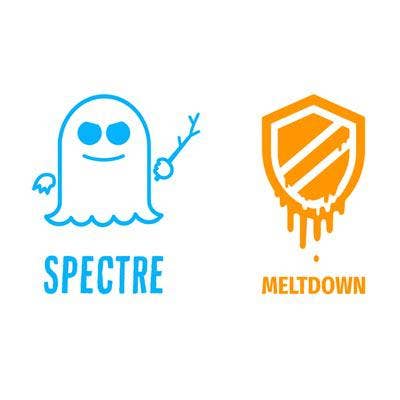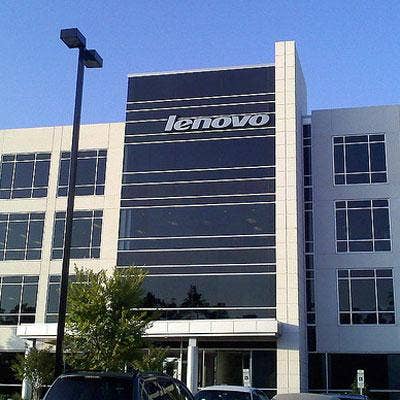5 Companies That Had A Rough Week

The Week Ending Jan. 5
Topping this week's roundup of those having a rough week is Intel, which scrambled to respond to reports that a pair of exploits in its processor architecture could affect millions of computers.
Also making the list this week are HP Inc. for having to recall approcimately 50,000 laptop batteries due to a potential fire hazard; Avi Networks, which was sued this week by Citrix for alleged patent infringement; VMware for having to patch several critical vulnerabilities in its vSphere Data Protection software; and Lenovo, which received orders from the Federal Trade Commission against misrepresenting the features of software it pre-loads on its laptop computers.
Not everyone in the IT industry was having a rough go of it this week. For a rundown of companies that made smart decisions, executed savvy strategic moves – or just had good luck – check out this week's 5 Companies That Came To Win roundup.

Intel Scrambles To Respond To Spectre And Meltdown Exploits
It was a nightmare of a week for Intel, which found itself under scrutiny after researchers discovered two chip-level vulnerabilities that potentially put millions of computers and devices at risk by allowing attackers to see contents of "privileged memory."
Intel continued to insist that the Spectre and Meltdown exploits were not the result of "flaws" in Intel's processors and were not unique to any one processor architecture or implementation. And, in fact, some AMD and ARM chips were also suspected of having the flaws. But Intel and its chip architecture took the bulk of this week's fallout.
While Spectre and Meltdown made for a rough week for Intel, nearly every IT company found itself responding to the potential threats with industry giants like Microsoft, Amazon Web Services, Apple and Google scrambling to develop fixes for their software platforms. But there were reports that some of those fixes could slow computer performance by as much as 30 percent.
And the Spectre/Meltdown exploits weren't the only problem Intel faced this week. A Gartner report this week on preliminary 2017 semiconductor market numbers said that for the first time since 1992 Samsung surpassed Intel in worldwide semiconductor revenue.

HP Recalls Batteries For 11 Laptop Models Due To Potential Fire Hazard
HP Inc. this week said it is recalling approximately 50,000 lithium-ion batteries for 11 laptop computer models, saying there is the potential for the batteries to overheat and catch fire.
Because the batteries are embedded in the PCs and not easily removed, HP plans to send technicians to customer sites to replace the affected batteries at no charge. In many cases HP solution provider partners will make the repairs.
The affected PCs include commercial and consumer notebooks, as well as mobile workstations. While HP said that only 0.1 percent of HP's PCs sold between December 2015 and December 2017 were affected by the recall, the company did not disclose the total number of PCs involved.

Avi Networks Sued By Citrix Over Alleged Patent Infringement
Avi Networks found itself on the wrong end of a lawsuit this week. Citrix has sued the application delivery software developer for alleged patent infringement and spreading "false claims" about Citrix's NetScaler networking products, according to a published report.
Citrix charges that Avi's Vantage Platform, the company's software-defined application service, uses patented Citrix technology without a license or Citrix's permission, according to the story on The Register website.
The suit also seeks to stop Avi Networks from making "numerous false and misleading deceptive statements" on its website about Citrix NetScaler. The lawsuit also charges that Avi Networks has hired a number of Citrix employees and suggested that they brought to Avi "their knowledge of Citrix's products and intellectual property," according to the story.
Avi Networks has vowed to contest the lawsuit.

VMware Patches Critical vSphere Vulnerabilities
While most everyone's focus this week was on the Spectre and Meltdown processor exploits, VMware was scrambling to fix three vulnerabilities in its vSphere virtualization software that an attacker could use to gain control of an affected system, according to a published report.
The vulnerabilities, all rated critical, are in the vSphere cloud computing virtualization platform, according to a story on the Threatpost website. Specifically, the bugs are in the vSphere Data Protection (VDP) backup and recovery software that's part of the vSphere platform.
Affected are VDP versions 6.1.x, 6.0.x and 5.x running on VMware's Virtual Appliances, according to Threatpost.
VMware has released patches for each of the vulnerabilities through updates to each of the affected versions of VDP, Threatpost said.

Lenovo Prohibited From 'Misrepresenting' Software Loaded On Its Laptops
The Federal Trade Commission this week handed down its final approval of a settlement with Lenovo that prohibits the Chinese computer maker from "misrepresenting any features of software preloaded on laptops that inject advertising into consumers' internet browsing sessions or transmit sensitive consumer information to third parties," according to an FTC statement.
The FTC order also requires that Lenovo implement for 20 years a "comprehensive software security program" for most consumer software loaded on Lenovo laptops.
The FTC orders stem from accusations that Lenovo installed software on some U.S. laptops that bypassed security to deliver advertisements. The so-called "Superfish" case, named for the company that developed the software, raised controversy in 2015 when it became public.
While Lenovo did not admit wrongdoing, the company agreed to settle the case in September 2017 by agreeing to the conditions and paying a $3.5 million fine. This week's FTC order makes the settlement final.